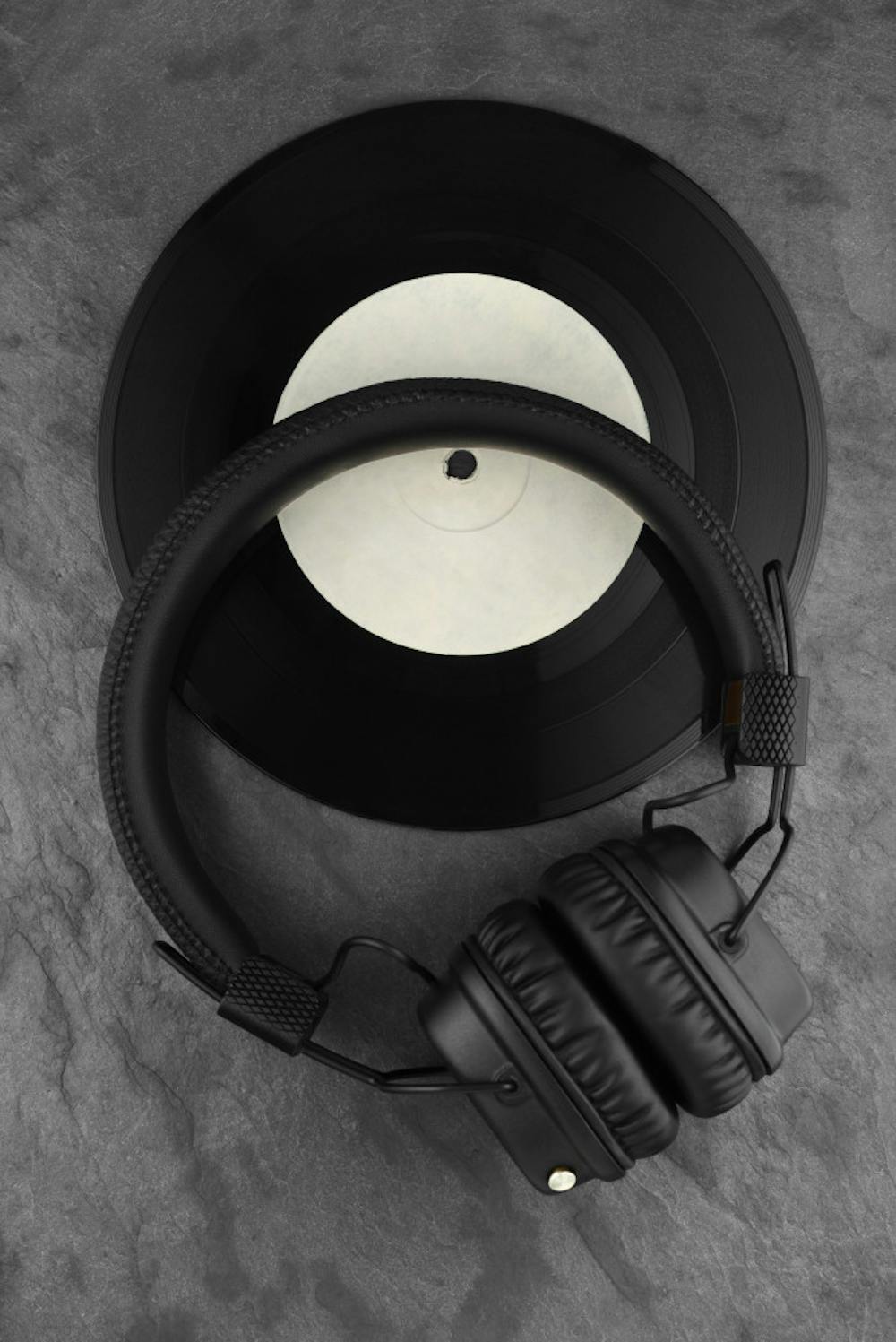By Thomas Infante
Arts & Entertainment Editor
Kendrick Lamar is without a doubt the most unpredictable figure in mainstream music. His 2012 album “Good Kid M.A.A.D. City” solidified his reputation as a master lyricist and storyteller, while his 2015 follow-up “To Pimp a Butterfly” showed a more philosophical and introspective side to his music. Lamar’s called himself the greatest rapper alive, a claim that many of his fans fervently support. After constant shifts in his musical style, in both lyrics and production, I had no idea what to expect from his latest album “DAMN.”
Upon its release on April 14, “DAMN.” shot to number 1 on the Billboard 200. It sold more than 350,000 albums and had more than 340 million streams in its first week. The attitude of this entire project is perhaps summarized most effectively on the cover of the album. Lamar stands in front of a brick wall in a white T-shirt, head tilted down with his shadowed face staring coldly into the camera — a look of complete indifference with a hint of menace. It is fitting because “DAMN.” is by no means a happy record. It’s fascinating, exciting and, at times, shocking both lyrically and musically — but it is not happy and neither is Lamar.

The album opens with “BLOOD.,” which begins with a voice that sings, “Is it wickedness? Is it weakness? You decide, are we gonna live or die?” The song continues with a narration by Lamar, who is shot to death on the street by a seemingly harmless old woman who he tried to help. The track is surreal and eerie. It sets up a recurring theme of weakness and wickedness.
“BLOOD.” is followed by “DNA.,” a bombastic and bass-heavy track produced by Mike Will. Lamar's lyrics juxtapose the different values that are inherent in his “DNA.,” which symbolically represents his racial and cultural upbringing as well as his literal genetics. Halfway through the song, the beat changes up considerably, with different percussion and a vocal sample that comes out of nowhere.
Will explained that he prepared the first beat, but created the second in the studio as Lamar rapped a cappella, according to NPR.
“I wanted it to sound like he's battling the beat,” he said. “He said he wanted the shit to just sound like chaos, I think in his head he knows what he's looking for, but he doesn't really tell me anything to put me in any kind of box.”
Will also solely produced the lead single for the album, titled “HUMBLE.” Despite the title, Lamar is quite aggressive in his lyrics, telling his competition in the rap game to “sit down” and “be humble.” Will’s beat, primarily featuring a basic low-pitched piano riff, gets catchier after multiple listens. Tracks like these show that for all his artistic experimentation, Lamar has not lost the ability to make a song that is enjoyable on a surface level.
“HUMBLE.” is lyrically and musically contrasted with the track “PRIDE.,” which is much more laidback and psychedelic. While his lyrics on “HUMBLE.” make Lamar seem wicked, his performance and lyrics on “PRIDE.” show a more vulnerable side.
A number of the tracks on this album seem to function as a pair, with contrasting values of wickedness and weakness. “ELEMENT.” is a trendier sounding trap song driven by drum machines and synthesizer samples. Lamar's lyrics are braggadocious as he talks about his superiority as a rapper as compared to others. The following track, “FEEL.,” is much more insightful and contemplative, and a mellow, jazzy beat complements Lamar’s downplayed lyrical delivery. Lamar lists many thoughts and realizations that have come as a result of his fame and success, most notably feelings of loneliness and frustration. In one breath he brags about being the best rapper alive, in the next he contemplates what it’s even worth.
Thematic similarities aside, most songs on the album are really good, with the lesser tracks being more forgettable than bad. Some, such as “YAH.” and “GOD.,” stray a little too far out of Lamar’s musical comfort zone, and seem especially boring as compared to the raw energy and emotion of songs like “DNA.” and “HUMBLE.” “LOYALTY.” featuring Rihanna is a decent song, but lacks the same lyrical depth and signature sound. On the other hand, the song “FEAR.” has more complex lyrics, but with a sleepy beat and nearly eight-minute runtime, the song drags.
Luckily these are offset by the remaining tracks. “LOVE.,” which features singer Zacari on the chorus, is undeniably catchy. Over a soft and tranquil beat, Lamar raps about the unconditional love that he hopes his partner reciprocates. The song has a genuinely loving feel to it, and it naturally contrasts from “LUST.,” in which Lamar’s distorted voice raps over a beat that sounds like it’s being played in reverse.
“XXX.,” which features rock band U2, is a bizarre song that perfectly captures the vibe of the album as a whole. The track begins with a minimal beat driven by drums and record-scratching sounds. Lamar's vocal delivery starts monotonously, but he grows more energized as the beat changes to feature sirens and a pulsating bass that sounds like someone trying to start a leaf blower. After a short chorus by Bono, the beat changes again to feature more soulful and melancholy instrumentation. Lamar’s lyrics mostly deal with the difficulties of staying out of gang life as a young black person in America. His expository lyrics become more passionate and personal, and finally resign to political commentary as the beat changes throughout the song.
The album ends with the song “DUCKWORTH.,” after Lamar’s own last name. The song tells the true story about how Lamar’s father was robbed by Anthony Tiffith, the future founder of the record label Top Dawg Entertainment that would go on to sign Lamar to a record deal. His father, who worked in a KFC that was frequently robbed, ingratiated himself to Tiffith after numerous other employees at the store were assaulted or shot in various robberies. When Tiffith robbed the store, he left Kendrick’s father unharmed, leaving the two to meet again years later after Kendrick’s rap career began to take off.
Lamar ends the album with the lyrics, “Whoever thought the greatest rapper would be from coincidence? Because if Anthony killed Ducky Top Dawg could be servin' life. While I grew up without a father and die in a gunfight.” After that, we hear a gunshot similar to the one at the beginning of the album, followed by what sounds like the album being rewound. This implies that the album is cyclical, maybe indicating that his being shot at the start of the album is his fate had his father been killed in that robbery.
According to Lamar’s longtime friend and producer Sounwave, cohesiveness was an important factor in the making of “DAMN.”
“The album is half the battle. The real battle is making everything cohesive. We’ll sit there for hours eliminating songs — that are so amazing — because (they) don’t fit. It has to make sense. (It has to be) a perfect circle. It has to connect,” he said in an interview with Revolt TV.
Lamar does not just make rap music, he creates his own universe to weave his own inner narrative. “DAMN.” shows the level of bluntness that he is willing to use to convey his stories.







